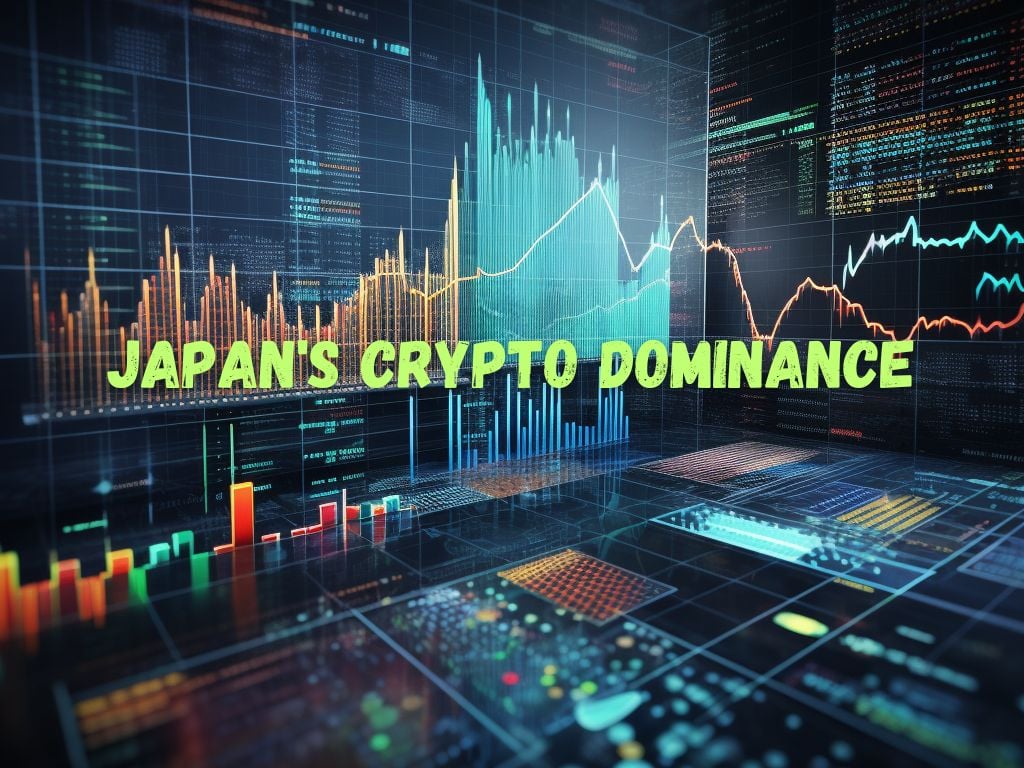Japan has long been one of the prominent leaders in crypto. The country, an early adopter of the blockchain currency technology, has had such an influence that it has helped shape the adoption of crypto by other countries.
While the likes of the United States and China have been racing and chasing hard to catch up and overtake, Japan is still drawing plenty of attention in the crypto world because of its positive, bold approach in this landscape.
But how did Japan get to the point of being such a crypto powerhouse? Was it all a risk that just paid off or was it simply down to some smart strategy and foresight that led to their crypto dominance?
What is crypto?
Cryptocurrency is a fusion of two words — cryptography, which relates to the secure encryption of data, and currency. It didn’t just pop up out of nowhere — as with any new technology, there was a lot of research and development involved before it became popular.
In 1983, David Chaum started work on cryptographic electronic money and in 1995, he came up with DigiCash, one of the early forerunners of the digital payment platforms.
In 2009, anonymous developer Satoshi Nakamoto unleashed Bitcoin and along with it, the first instance of the now-famous blockchain base upon which it operates. That digital public ledger system was the game-changer and is what ensures the security of crypto.

Early adopter
Japan was one of the first countries to get on board with Bitcoin, and thanks to the early adoption of this new digital currency, Mt. Gox was formed. The Japanese company was the largest Bitcoin exchange in the world at one point, with almost three-quarters of the world’s Bitcoin transactions going through them.
But the fact that Mt. Gox — which ran into trouble in 2014 when their security was hacked — was able to become a leader in the new technology speaks volumes about the liberal nature that seems to be intricately woven into the Japanese mindset.
Japan has long been associated with technological innovation and is seen as a playground for entrepreneurship. There has almost been a thirst for innovators to keep up with the constant demand to break new ground in technological advancements.
Having an extensive background in computer science and specific areas such as cryptography were some of the underlying reasons why crypto was trusted and adopted early by Japan.
Spotting potential
It’s easy to spot the potential in something but still exercise caution and do nothing about it. Cryptocurrency, being a digital-decentralized system, was quickly adopted by regulators, and the demand and curiosity were high enough among people to pull it all together.
Even when crypto was still trying to be understood across the world, and governments had no idea about whether it should be regulated, Japan was busy mining and their cutting-edge infrastructure was growing. There may not have been much value in it during the early days, but Japan was already engaged and seeing the long-term potential value.
No overreaction
There have been crashes of crypto, of course. The security breach at Mt. Gox, which was not down to the blockchain technology but Mt. Gox’ security vulnerabilities, was naturally a setback. A similar story unfolded at Coincheck.
It was something that would have made other countries, already hesitant about the decentralized currency, back off and watch from afar, happy to not have been involved. Japan’s government had a choice at these major junctions in the development of crypto.
They could have stopped it all, and shut it down. But in the fallout of Mt. Gox, Japan didn’t take such a radical approach and instead took a more liberal view of things by setting regulations to protect consumers.
Giving people protections against things like Ponzi schemes and scams, plus tightening up on the regulations that crypto companies need to comply with, suddenly made the digital currency all the more appealing to consumers.
Japan became one of the first countries in the world to legislate and regulate crypto. In 2016, it was officially recognized because it did bring monetary value. Japan did stop short of adopting crypto as a legal tender, however, a situation in which most countries find themselves.
Issuing crypto as legal tender would mean issuing it from a central bank, none of which have yet taken up the reins due to volatility. Currently, crypto control in Japan is overseen by the Financial Services Agency (FSA).

Digital banking currency
But the future catches up with us all. There have been reports that the Japanese Central Bank may be heading towards a digital currency of its own to release to Japanese citizens. That would send shockwaves around the world in terms of the value of crypto and how it can be successfully handled.
Web3
There is also a lot of talk about Japan’s Web3 strategy. This is a development designed to help the growth of digital transformation in the country. Part of the Web3 Innovation Fund’s goal is to push further innovations in the area of decentralized finance and blockchain infrastructure within the country.
Web3 is based on blockchain networks, and Japan’s Prime Minister Fumio Kishida is known to be behind the movement. This new version of the web that Japan is driving towards is designed to give people more control over their data assets, which will stay in decentralized networks.
It’s a proactive and progressive approach to the future in many areas of blockchain technology, from investing to blockchain gaming.
Blockchain gaming
Online blockchain gaming is expected to be one of the next big things. Whether it’s online casino play at a roulette table, online poker or dipping into MMORPG games, the decentralized platform should allow for greater availability of peer-to-peer payments and the purchasing of game assets with crypto tokens.
All transactions could be securely recorded on the blockchain. Buying, selling and trading of assets would be recorded across the publicly available ledgers. Blockchain gaming could allow users to buy, sell and trade assets like characters, weapons and furniture inside of games.
That would take it away from the game publishers and put more control in the hands of players, with their experience in upgrading and monetizing, plus incorporating other features like game rules.
Again, this is another big aspect of growth that Japan is driving. Their expansion of blockchain-based gaming is expected to be around 12% by 2028.


 Tags:
Tags:










